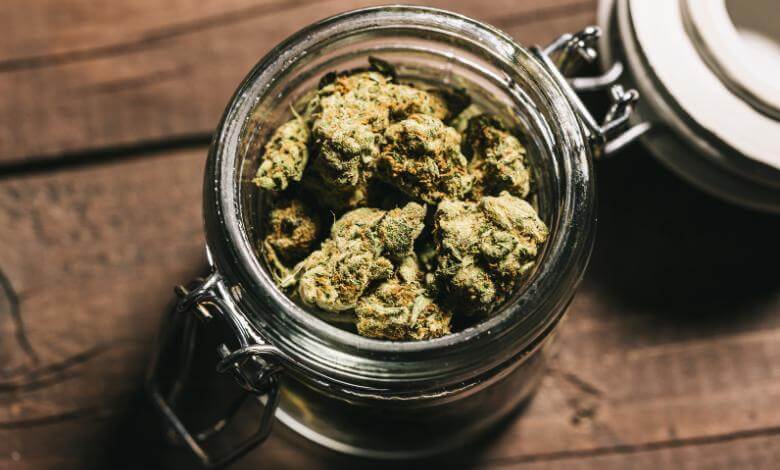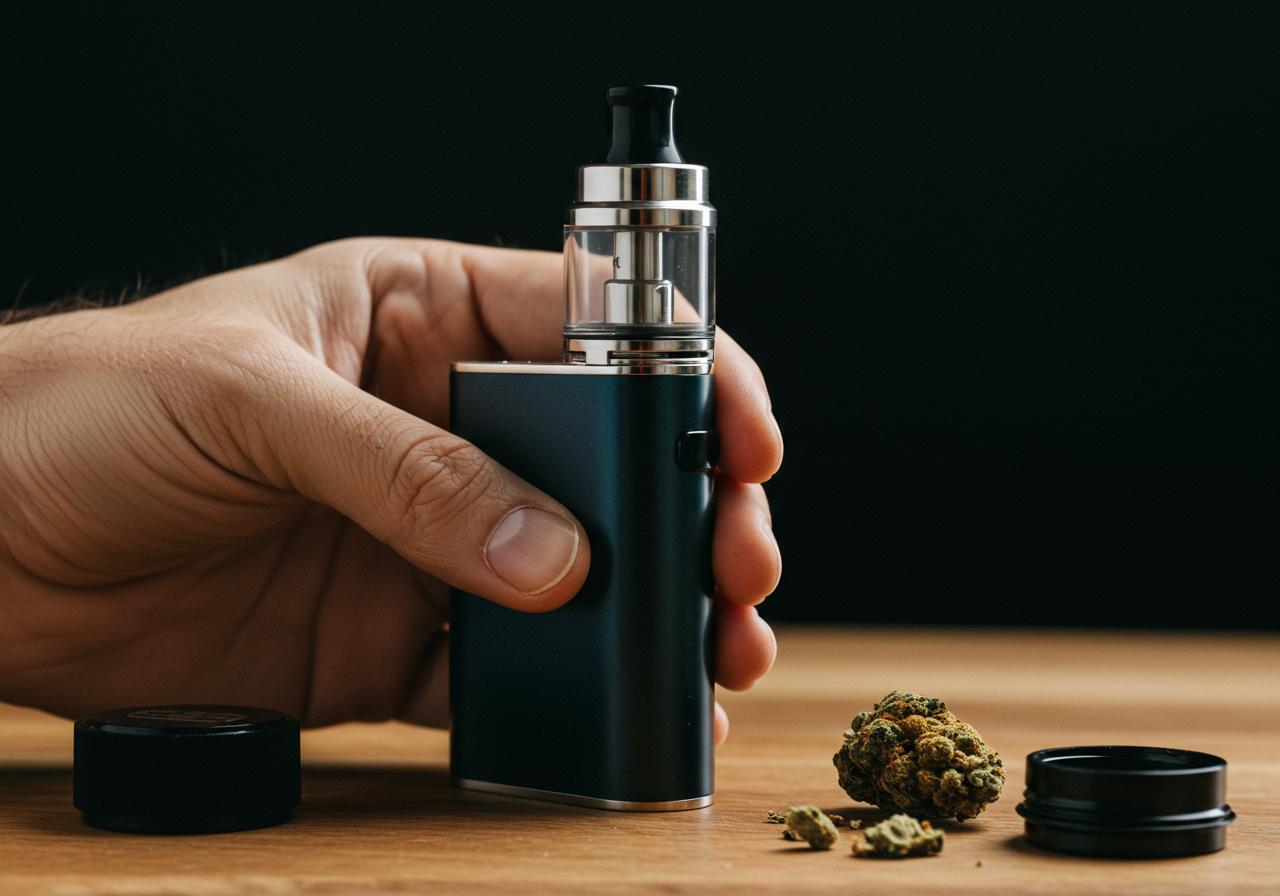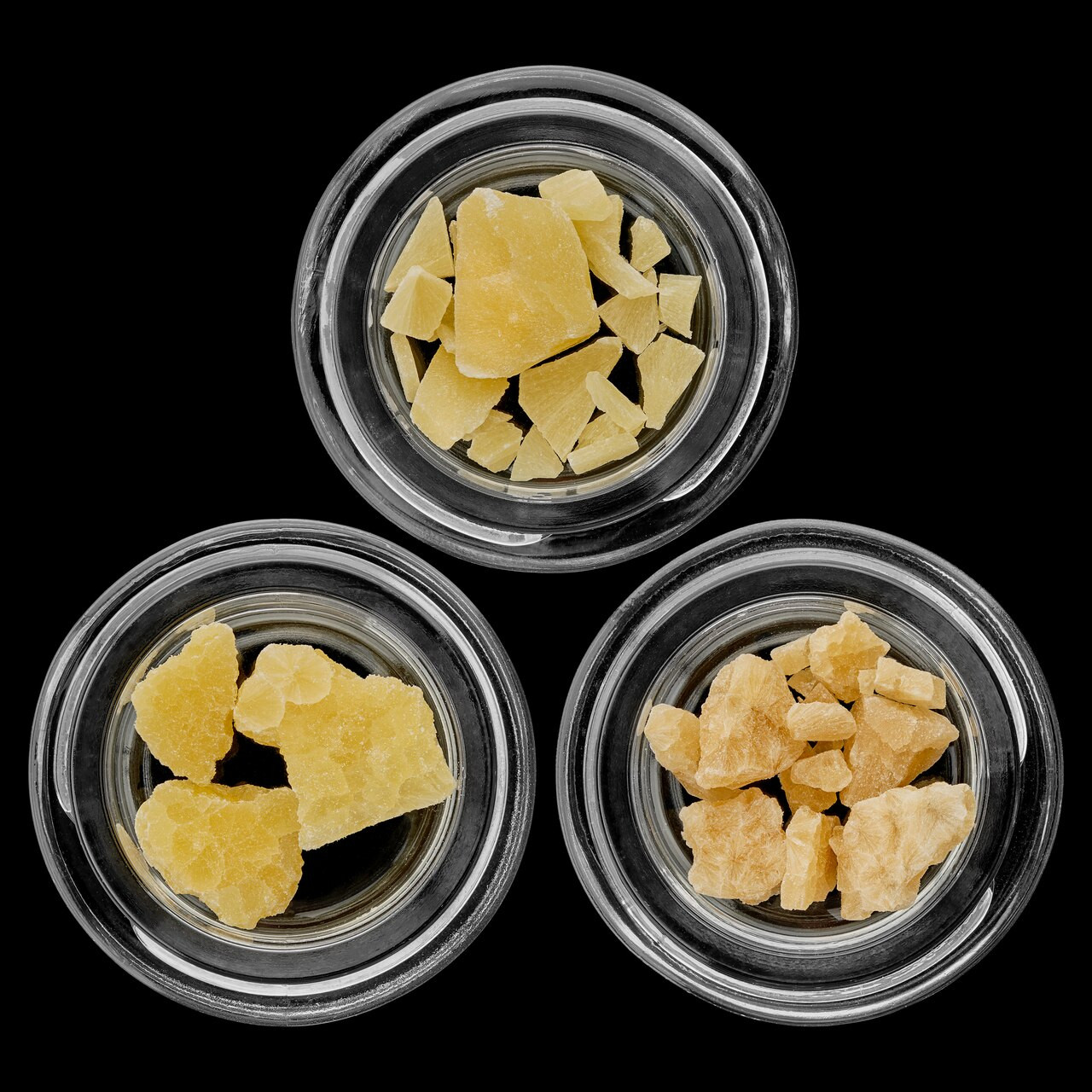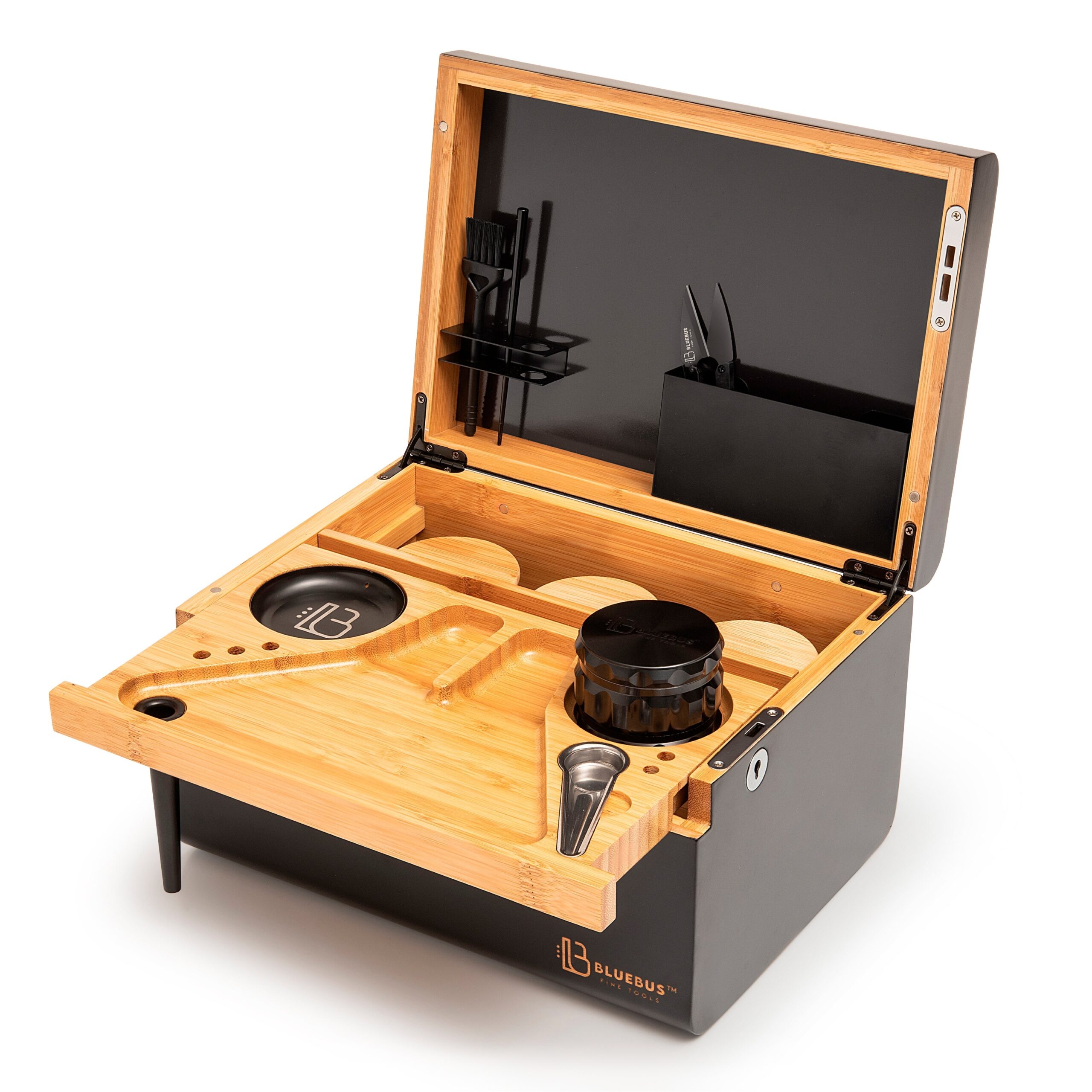THC Potency Tester: A Comprehensive Guide to Measuring Cannabis Potency
Published on September 8, 2023
Last Updated on September 8, 2023
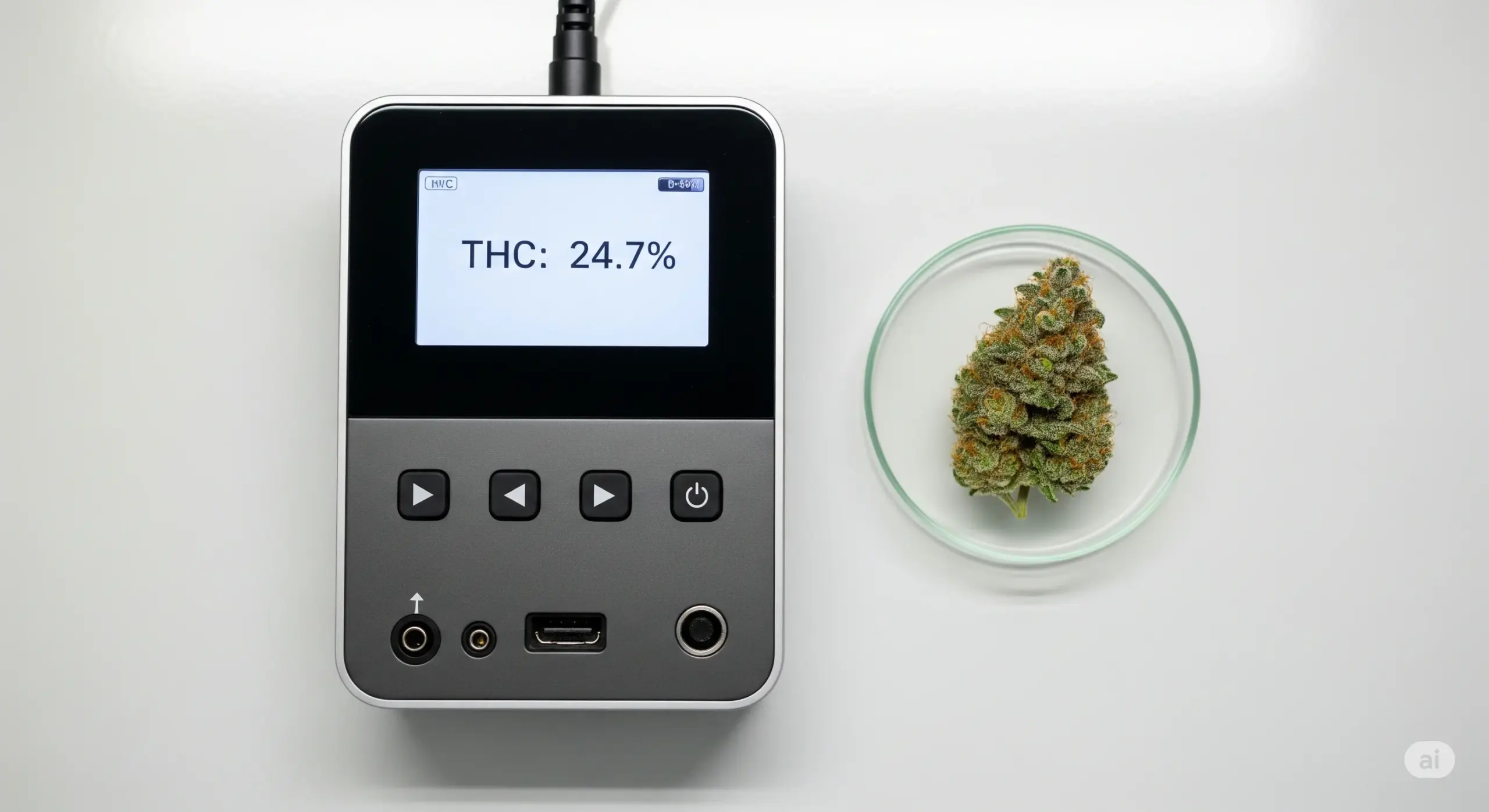
In the bustling world of cannabis, talk often swirls around THC potency. Why? It’s a big deal. THC, the star cannabinoid in the cannabis plant, is what gets folks talking and frankly, it’s what gets them euphoric. But picture this—you’re at a dispensary, about to pick up your favorite strain, and you’re staring at labels boasting different THC percentages. Now, what’s behind these numbers? That’s where THC potency testing steps into the spotlight. Striving to understand this not only enhances your cannabis experience but also keeps you legally on the safe side, especially in places like the United States where regulations govern how high—pun intended—potency can go. While some may relish the euphoria, not everyone wants a Sahara-dry mouth, a common side effect THC can usher in.
This post is intended as information and for general knowledge only. It is not a substitute for medical advice, diagnosis, or treatment. It is recommended that you talk to a healthcare professional about this before introducing cannabinoids into your daily routine (especially if you have been diagnosed with any medical conditions or are under any medication). It is not recommended to drive or operate any machinery when using hemp-derived products. Use responsibly!
Traditional Methods for Testing THC Potency
Testing THC potency? It’s more than waving a magic wand. It’s science in action. Traditional methods have been the backbone of this process. In the lab, experts often rely on gas chromatography and high-performance liquid chromatography. These tools, although might sound like they’re straight out of a science-fiction novel, are the real deal. They separate, identify, and quantify the components within cannabis, zeroing in on THC levels. They have served well, but like old cars, they need maintenance, demand precision and can sometimes be a tad slow on the delivery of results. The reliability? High but like anything traditional, there’s room for error, an accuracy margin we live with until something better waltzes into the scene.
Innovations in THC Potency Testing
Say hello to the new kids on the block – innovations making THC testing slicker and more precise. We’re talking about technological marvels that are brushing shoulders with cannabis. Electronic cigarettes, for example, are playing party crashers in THC analysis. Think of cutting-edge ways like thp420 liquid and thp420 joint, which aren’t your average joints—they’re doing double duty, offering both enjoyment and insights into THC content. Technology’s dancing steps in the THC testing arena aren’t just about novelty; they’re about advancing accuracy, swiftness, and reliability. As researchers delve deeper, these new techniques promise to redefine how potency is perceived and measured.
Understanding Cannabis Products and Potency
Cannabis products? A universe within itself. From marijuana buds to neat little bottles of CBD oil, what’s common is the discussion on potency. This potency—how strong or mild the effect—plays a pivotal role, especially in medical cannabis circles where every dose can mean a significant shift in a patient’s well-being. Higher doses, these command attention, may not be for everyone. The novice could find themselves overwhelmed, while a seasoned user might just find it their cup of tea. Understanding these products—their derivatives, their impact—is fundamental not just for users but for everyone in the cannabis loop.
Influence of Potency on Product Experience
The dance between potency and user experience is a delicate one. More often than not, the potency dictates effectiveness, meaning those CBD gummies or that enticing cbd liquid bottle can vary dramatically in impact. Take for instance, a higher THC percentage—euphoric effects might just catapult sky-high, introducing a wave of euphoria. This isn’t just about getting a buzz; it’s about deep relaxation, managing therapeutic outcomes, and ensuring that what you consume aligns with your desired experience.
THC Potency and Regulation
Everywhere you look, regulations have it covered. THC potency comes under watchful eyes, and South Dakota, among other regions, has laid down its Controlled Substances Act to oversee these matters. With each act (take act no 652017 for example), governments are making sure THC levels keep within their lanes. Licensing, compliance—these aren’t just red tape, they’re assurances that what reaches the consumer is safe, reliable, and law-abiding.
Implications for Consumers and Producers
I’m holding a cannabis product; what’s that label whispering? Potency labels are maps, guiding consumers through the terrain of THC levels. Informed choices start with understanding these indicators, something producers have to communicate clearly. It’s not just about staying on the right side of the law; it’s about trust. Press releases and communications from producers have a duty to hold accuracy on a pedestal—misleading information isn’t just a faux pas; it knocks down the pillar of consumer confidence.
Conclusion and Future Directions
So, THC potency testing has given us a lens into what lies beneath cannabis labels. It wasn’t easy figuring all this out, with challenges sprinkled along the testing path and regulation road. But, the future? It’s bright, teeming with possibilities as innovations like hhc a liquid and cannabinoid thcp research push boundaries, promising efficiency and accuracy. The industry, marked by trials and triumphs, paves its path forward with every measure, every test, every innovation. The journey never stops, and neither does the quest for understanding every leaf, every drop, every puff.
Also Interesting:
The Rise of Delta 8 in Minnesota: A Comprehensive Guide
Delta 8 Austin: A Comprehensive Guide to Delta 8 THC in Austin Texas
Delta 9 vs Weed: Understanding the Differences and Similarities
